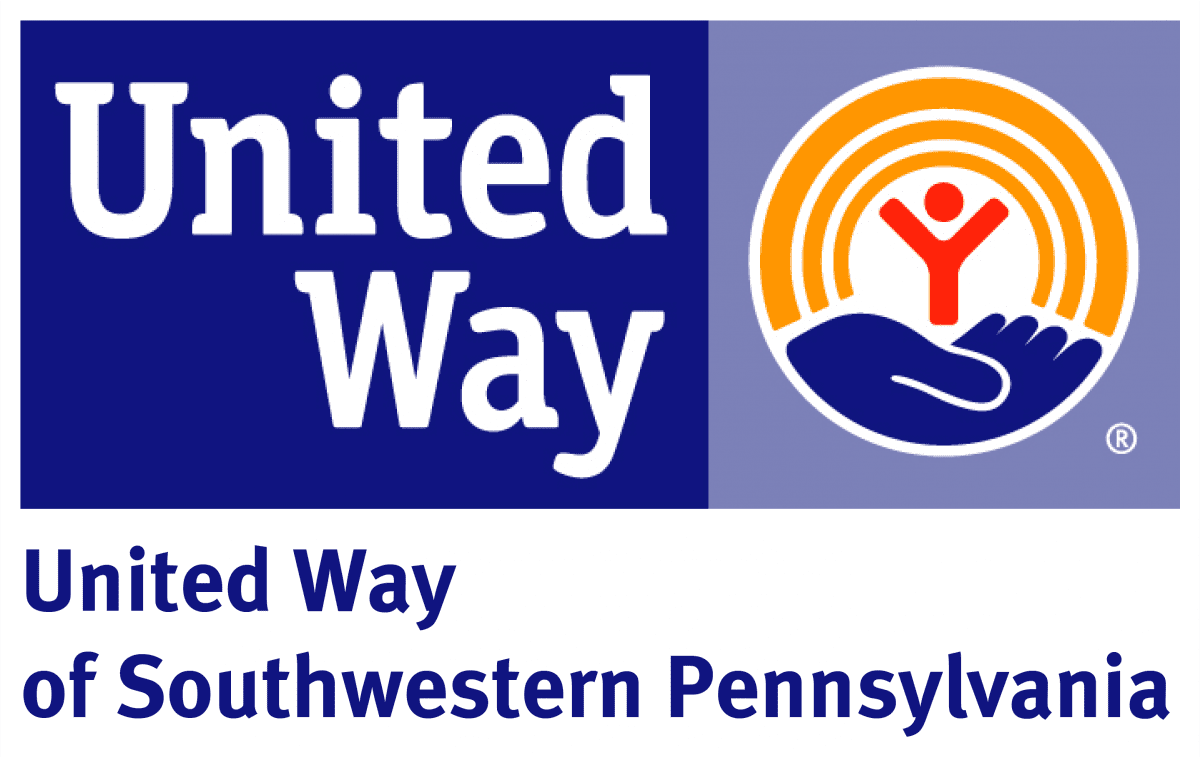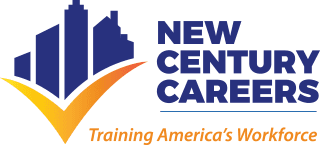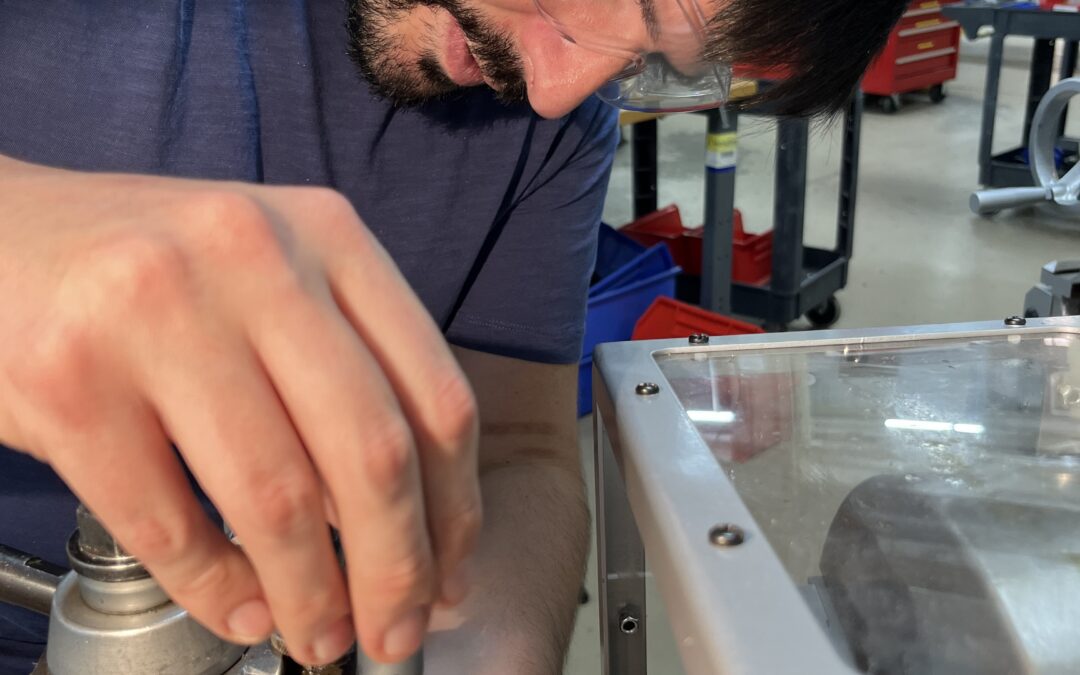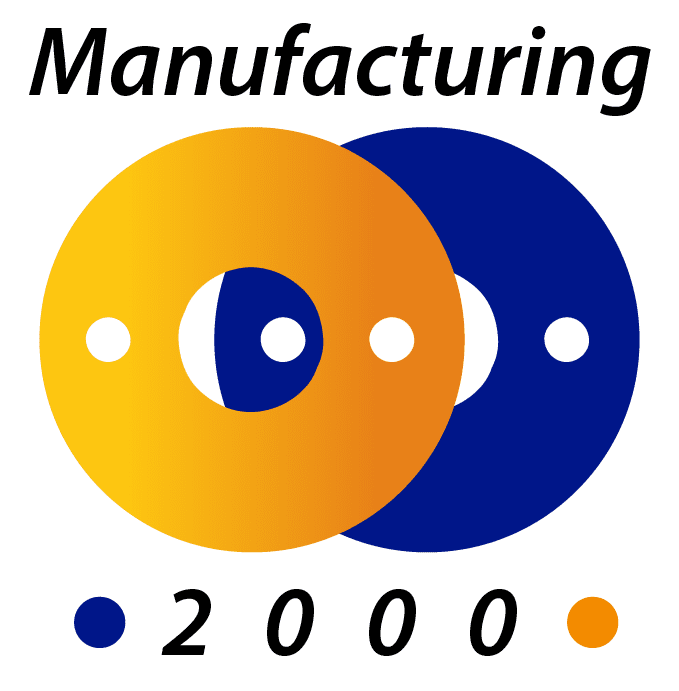A member of the August 2024 training cohort, Robert C., didn’t always see himself in the manufacturing industry. “I started in English and Communications, then moved into music publicity and PR,” he explains. “Machining was a complete pivot for me, but it just made sense. I grew up playing instruments, and machining feels similar—repetitive inputs, honing skills. When I find something that clicks, I don’t mind doing it to where I lose track of time.”
Robert first heard about the program through a Reddit thread a friend shared, mentioning “tuition-free machining.” Intrigued, he explored the program, inspired by his family background in trades; his father is a carpenter, and his uncle is a machinist. Robert was ready to develop hands-on skills that would open doors in new fields.
His training journey has included hands-on use of tools like the manual lathe and mill, and he’s since had brief experiences with CNC programming and even a collaborative robotic arm. “Right now, I’m at the tip of the iceberg—the sky’s the limit,” he says. “The instructors always talk about learning something new in this industry in their day-to-days.”
Through New Century Careers, Robert also earned two National Institute for Metalworking Skills (NIMS) credentials, which have begun shaping his confidence in the job market. “I know there’s a lot more to learn, but these credentials show that I’m building a strong foundation.”
For Robert, the impact of NCC goes beyond technical skills. “It’s the environment and encouragement,” he shares. “Everyone here believes in you, no matter what level you’re at. Having people on your side—that’s invaluable.”
After completing the program, Robert envisions working in fields like medical or aerospace manufacturing. “Talking with my uncle about it, those fields make sense to me. There’s a real impact on quality of life in those industries, and it’s something I’d be proud to contribute to.”
Robert C’s journey is a testament to the unique opportunities New Century Careers’ MANUFACTURING 2000 program offers—a blend of technical skill-building, mentorship, and an environment where participants can overcome challenges even when mistakes are made, as Robert describes, through a process of trial and error supported by dedicated instructors.





